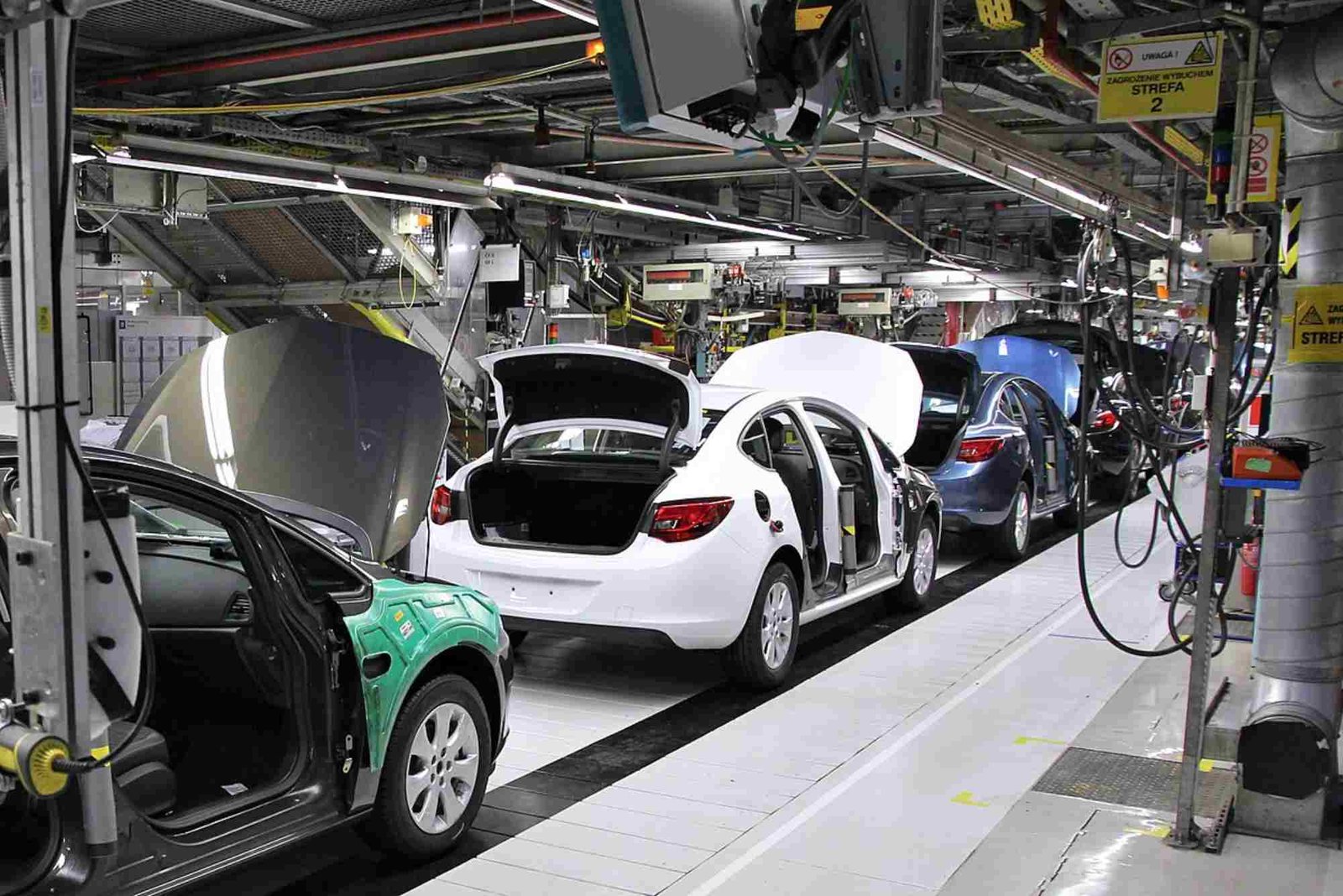Introduction
The world of automobile and engineering is one of continuous innovation and evolution. From early steam-powered vehicles to today’s electric and autonomous cars, automotive engineering plays a crucial role in shaping how we move, live, and interact with technology. Understanding automobile engineering means diving into the science, design, and technology that drive the automotive industry forward. Whether you’re a student, an enthusiast, or someone curious about how cars work, learning what defines automobile and engineering offers valuable insights into a world where creativity meets precision.
Understanding Automobile Engineering
At its core, automobile engineering is a branch of mechanical engineering that focuses on the design, development, manufacturing, and testing of vehicles. It integrates concepts from electrical, electronic, software, and safety engineering to create efficient and reliable automobiles. Every car on the road is a result of years of research, prototyping, and rigorous testing by automotive engineers who strive to balance performance, safety, and environmental sustainability.
The Foundation of Automobile Design
Design in automobile engineering goes beyond aesthetics. Engineers must consider aerodynamics, weight distribution, and material strength. For instance, lightweight materials such as aluminum and carbon fiber are used to enhance performance and fuel efficiency. Advanced simulation software allows engineers to test vehicle performance in virtual environments before physical production begins. This precision-driven approach ensures that every component contributes to a smooth and safe driving experience.
The Role of Technology in Modern Vehicles
Technology is the beating heart of today’s automotive world. Innovations such as hybrid systems, electric drivetrains, and autonomous driving technologies have transformed the traditional vehicle. Sensors, AI algorithms, and connectivity tools now enable cars to communicate with their surroundings, enhancing safety and reducing accidents. Modern vehicles also include advanced infotainment systems and digital dashboards that make driving more comfortable and intuitive.
Evolution of the Automotive Industry
The history of automobiles traces back to the 19th century when pioneers like Karl Benz introduced the first practical motorcar. Since then, automobile and engineering have progressed through remarkable technological revolutions. From the internal combustion engine era to electric mobility, every phase has contributed to the world’s growing need for efficient transportation.
The Rise of Electric Vehicles
Electric vehicles (EVs) represent one of the most significant advancements in automobile engineering. They use electric motors powered by batteries instead of conventional fuel engines, offering eco-friendly alternatives with lower emissions. Brands like Tesla, Nissan, and BMW are leading the EV revolution, pushing for innovation in battery efficiency and charging infrastructure. Related resource: in automobile engineering.
Sustainability and Green Engineering
With growing environmental concerns, sustainability has become a top priority in automobile design. Engineers are exploring biofuels, hydrogen fuel cells, and hybrid power systems to reduce carbon footprints. Recyclable materials, energy-efficient manufacturing processes, and waste reduction strategies now define modern automotive production lines.
The Engineering Behind the Machine
Automobile engineering combines multiple disciplines, including mechanical, electrical, electronic, and software engineering. This integration ensures that every vehicle operates efficiently and safely under various conditions.
Mechanical Engineering Principles
Mechanical engineers in the automotive sector focus on the design of engines, brakes, transmissions, and suspension systems. Their goal is to optimize power delivery while maintaining comfort and stability. The choice of materials, thermal management, and lubrication systems are key factors that influence a vehicle’s durability and performance.
Electrical and Electronic Systems
The increasing electrification of vehicles demands a strong foundation in electrical engineering. From electric motors to energy management systems, every component must be designed for maximum efficiency. Engineers develop battery systems, regenerative braking, and smart control units that make cars more energy-efficient and responsive.
Software and Automation Integration
Software is rapidly becoming the most critical component in modern cars. Advanced Driver Assistance Systems (ADAS), GPS navigation, and AI-based control modules rely on sophisticated coding and real-time data analysis. The goal is to make vehicles smarter, safer, and capable of autonomous decision-making under specific conditions.
Career Paths in Automobile Engineering
For those considering a career in automobile and engineering, the opportunities are vast and diverse. Engineers can specialize in vehicle design, manufacturing, testing, quality assurance, or research and development. Roles include automotive designer, mechanical systems engineer, materials specialist, and electric vehicle developer.
Educational Requirements and Skills
A degree in mechanical or automobile engineering is typically required. However, modern engineers also need strong skills in computer-aided design (CAD), programming, and data analysis. Creativity, analytical thinking, and problem-solving abilities are vital traits that distinguish successful automotive engineers.
Emerging Fields and Future Trends
The future of automobile and engineering lies in innovation. Engineers are now exploring fields such as smart mobility, sustainable manufacturing, and autonomous systems. The integration of AI, IoT, and big data will define how future vehicles operate. Students interested in this field should focus on interdisciplinary learning and continuous skill development to stay relevant in this rapidly evolving industry.
Challenges in Automobile Engineering
Despite its exciting growth, the automotive industry faces several challenges. Engineers must balance consumer expectations, regulatory standards, and environmental constraints while maintaining profitability.
Safety and Regulatory Standards
Safety is non-negotiablein automobile engineering. Vehicles must comply with strict global standards that cover crashworthiness, emissions, and pedestrian safety. Engineers conduct simulations and crash tests to ensure vehicles meet these requirements before reaching the market.
Cost and Efficiency Balance
Consumers demand high-quality cars at affordable prices, forcing engineers to optimize costs without compromising performance. This challenge requires innovation in materials, production techniques, and design strategies.
Technological Adaptation
With the rapid pace of innovation, keeping up with technology is another challenge. Engineers must constantly update their knowledge and adapt to new tools, software, and methodologies to remain competitive.
The Impact of Automation and Artificial Intelligence
Automation and AI have redefined what to know about automobile and engineering in today’s digital age. Self-driving cars, intelligent traffic systems, and predictive maintenance technologies are revolutionizing mobility. These systems use real-time data to enhance safety and optimize vehicle performance.
The Future of Self-Driving Cars
Autonomous vehicles rely on AI-powered sensors and cameras to navigate roads safely. While still in development, they promise to reduce human error, traffic congestion, and fuel consumption. However, ethical and legal considerations continue to shape their implementation.
The Role of Data in Engineering Innovation
Data collection and analysis have become vital in designing smarter vehicles. Engineers use big data to improve design precision, predict maintenance needs, and enhance user experience. This data-driven approach helps manufacturers create vehicles tailored to consumer preferences.
Global Influence of Automobile Engineering
The influence of automobile engineering extends beyond transportation. It contributes to economic growth, employment, and technological progress. Countries such as Germany, Japan, and the United States remain global leaders due to their advanced automotive research and manufacturing capabilities.
Automotive Industry and Economic Growth
The automotive sector supports millions of jobs globally, from research and development to assembly lines. It also drives innovation in related industries such as electronics, robotics, and renewable energy.
Environmental and Social Responsibility
Modern automotive companies recognize their social responsibility toward the planet. By investing in sustainable technologies and reducing emissions, they contribute to a cleaner and healthier future.
How to Make a Career in Automobile and Engineering
If you’re passionate about cars and technology, understanding How To Make a career in this field begins with education and curiosity. Pursue an engineering degree, explore internships, and stay updated on the latest trends. Joining professional associations and attending industry conferences can also open valuable networking opportunities.
Driving into the Future
Automobile and engineering represent the perfect fusion of innovation, creativity, and technical mastery. From traditional combustion engines to the rise of electric and autonomous vehicles, this field continues to evolve and inspire. Understanding its core principles helps individuals appreciate the engineering marvels behind every vehicle. Whether you’re aspiring to design the next-generation electric car or simply fascinated by automotive technology, this field offers endless opportunities for growth and discovery. Explore more about what to know about automobile and engineering, stay curious, and embrace the innovations driving the world forward.
FAQs
What is automobile engineering?
Automobile engineering is a branch of mechanical engineering that focuses on the design, development, and manufacturing of vehicles.
What subjects are important in automobile engineering?
Key subjects include mechanical design, thermodynamics, electrical systems, fluid mechanics, and computer-aided design.
Is automobile engineering a good career choice?
Yes, it offers excellent career prospects, especially with the rise of electric and autonomous vehicle technologies.
What is the role of AI in automobiles?
Artificial Intelligence helps improve safety, automation, and data-driven performance through predictive analytics and driver assistance systems.
What are the latest trends in automobile engineering?
Electric vehicles, self-driving technology, and sustainable design are the leading trends shaping the industry today.




